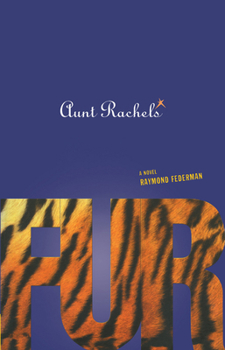Aunt Rachel's Fur
Aunt Rachel's Fur is a novel about its own telling, an intimate meeting between voice and reader, in which flesh and blood are reduced to fiction, and fiction, by its telling, becomes fact. Reymond Namredef, a French expatriate, has returned to France after a disastrous decade in America, with 365 boxes of pasta and the hope of publishing his novel about a novelist. In a cafe in Paris, he meets a professional listener, and, through a series of conversations, offers a loose account of his life that shows little respect for chronology. His story is woven of fragments, branching out over a lifetime and capturing the alchemy of fiction and memory.
Faced with the chaos of the twentieth century, Federman finds humanity in the absurd. Like novelists Mark Amerika and Ronald Sukenick, he skewers literary convention and pushes the boundary of postmodernism. Aunt Rachel's Fur is both a tribute to his love of the word--the story as it is told--and a further exploration of our understanding of fiction.





